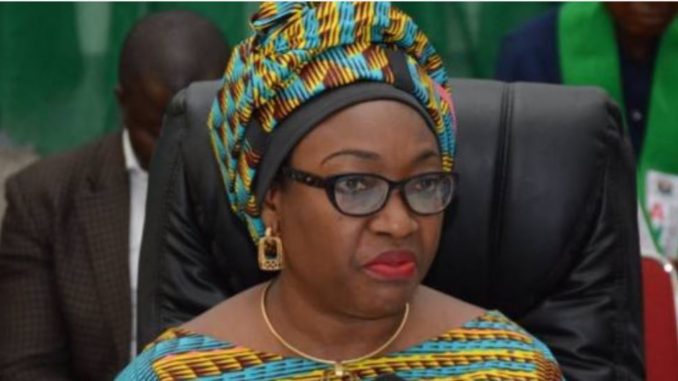
IN a rare display of introspection, the Head of Service of the Federation, Winifred Oyo-Ita, admitted the deterioration of the civil service and its inability to deliver quality services. Highlighting the findings of a survey on the bureaucracy, she cited low morale, nepotism, poor work environment, poor work tools and an ageing, indolent workforce as drawbacks to efficient Federal Civil Service. As usual, neither she nor President Muhammadu Buhari has come up with the needed radical reform programme to transform the service into a driver of development.
Everywhere else, the public service delivers progress. The United Nations Development Programme says, “Effective, accountable and responsive institutions are fundamental to achieving the core functions of government,” arguing that capable state bureaucracies are especially crucial for developing countries. Nigeria’s public service, however, has been in crisis for decades: bloated, corrupt, inefficient and weak on technology and innovation. This much was contained in the report, “Federal Civil Service Strategy and Implementation Plan (2017-2020): Culture Diagnostic Survey Report,” presented by Oyo-Ita in Abuja.
Nepotism in recruitment and promotion was found to be prevalent, as were lack of motivation, non-conducive work environment, time-serving, lack of commitment and impunity. Apart from the ageing workforce, creativity and innovation were stifled even as indiscipline was also an issue.
On the plus side, the report said employees had a strong level of organisational identity, “knowledge of the mandate of their ministries, departments and agencies, pride in FCS and attainability of the mission of the FCS.”
Successive Nigerian governments have been painfully aware that the civil service is troubled. Attempts at reform, however, often ended up seeing only the implementation of new salary structures, while the crucial yardsticks of performance, right-sizing, competence and technology use were downplayed. Tunji Olaopa, a former top civil servant and professor of public administration, attributes this to the absence of a “transformational leader” in the mould of Singapore’s Lee Kuan Yew. Former President Olusegun Obasanjo (1999-2007) declared that, as constituted, it could not deliver development. His response was to initiate reforms advised by a World Bank team. Since then, a new payroll system that has repeatedly exposed fictitious workers, and monetisation of fringe benefits scheme have been entrenched. Alas, the reforms have not been extensive enough to cut off the excess staffing, uproot corruption, instil efficiency, adopt technology tools to cut down bureaucracy and reduce opportunity for graft. The Economic and Financial Crimes Commission said in April 2016 that it detected 37,395 “ghosts” on the payroll, in addition to the 34,000 the Federal Ministry of Finance said it removed that same year. The EFCC said, rather than abate, procurement-related fraud rose in the public service. Yet, personnel costs are expected to take N2.29 trillion or 40 per cent of the N8.9 trillion 2019 budget; it had risen by 12 per cent in 2018, prompting Buhari to promise further improvement in the Integrated Payroll and Personnel Information System.
Sadly, Buhari has remained, like his predecessors, a “transactional leader” rather than a transformer, while in the FCS, the norm identified by Olaopa of “too many doing nothing and too many doing too little…” continues. A proposal by the government to recruit fresh graduates and the as-yet-undefined “strategic plan” hinted by the HoSF to address problems raised in the report are futile half-measures.
Only root and branch reform can change the narrative. The government demonstrated its short-sightedness once again when, in negotiating a new wage structure with labour unions, it failed to tie agreements on performance and right-sizing. Now, it is saddled with implementing a higher wage bill without any reform of the service for performance and without any commitment from the workers.
Transformational leadership, however, sets the pace elsewhere. To pull itself up after the devastating pogroms, Rwanda began implementing continuous Public Sector Reforms to drive its development policies that, according to the Effective States Inclusive Development, an NGO, “has resulted in a relatively non-corrupt, capable and coordinated bureaucracy which makes efficient use of pubic and donors’ funds.” From a low 6.4 per cent in 1998, the percentage of its civil servants with university degrees rose to 79 per cent by 2005, a Princeton University, USA study found. Ghana undertook a Civil Service Reform Programme 1987-1993 to instil efficiency, drive development programmes and between 1987 and 1992, the number of civil servants fell by 17 per cent.
The UNDP emphasises the importance of the developing economies creating efficient bureaucracies. A ranking of some 31 countries in civil service effectiveness by the Institute for Government, a UK-based think tank, in 2017, put Canada, New Zealand, Australia, the United Kingdom, Finland and Sweden in the top five, citing technology use, innovation, performance targets, transparency, merit and motivation as key success elements.
Nigeria should emphasise merit, the lodestone of Singapore’s success that makes it No.1 in the world by other expert rankings. It attracts the best graduates, has attractive pay and eschews corruption, enabling it to drag the South-East Asian nation from poverty and obscurity to the top of the league table in per capita income. Nigeria’s federal character principle, a staple in a diverse polity, has been so badly abused as to entrench a debilitating culture of nepotism, mediocrity, unfairness and impunity. It should be changed; affirmative action need not translate to the overthrow of merit. Buhari should retrieve the National Strategy for Public Service Reform document that embodies a template for aligning the FSC for today’s challenges and commence its implementation. The country can no longer afford the financial burden of a parasitic civil service that drains resources and hobbles development. Outsourcing, a strategy Malaysia’s reformist prime minster, Mahathir Mohammed, employed in his epochal first tenure, 1981 to 2003, is an option for Nigeria with over 540 MDAs of dubious value.
Buhari needs to muster the political will to remake the civil service, downsize and instil a new work ethos to drive development, foster job creation and reduce poverty.
END

Be the first to comment